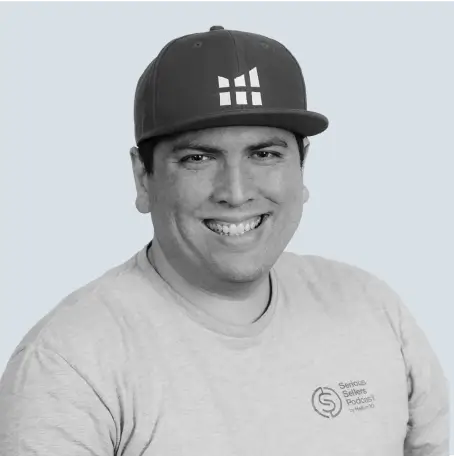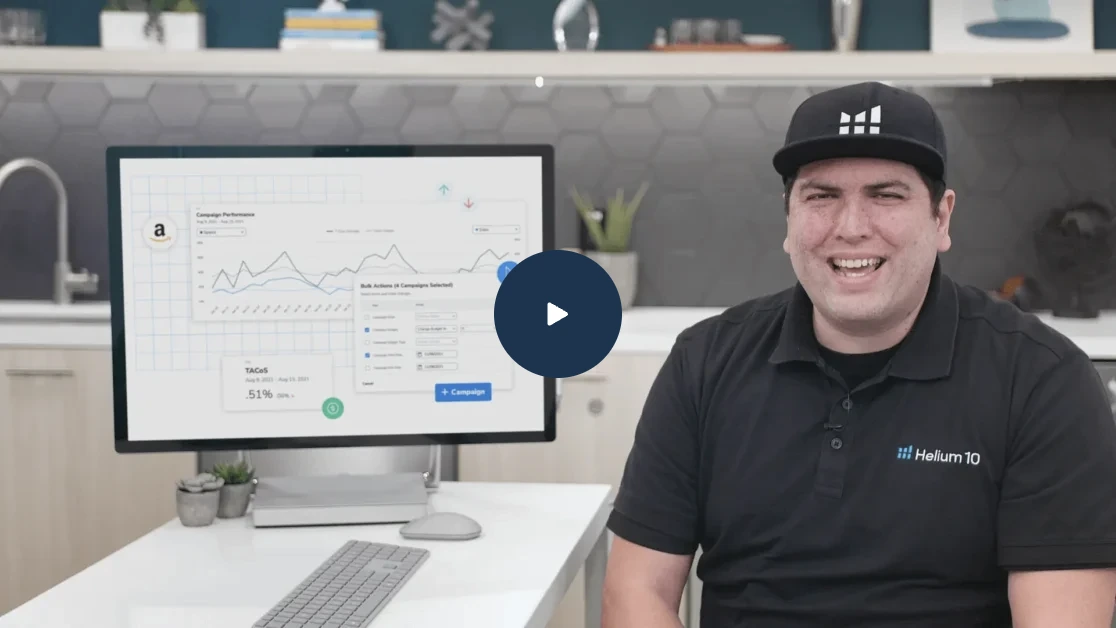Understanding PPC and Organic Listings on Amazon.

Let’s talk PPC! Bradley Sutton, Helium 10’s Director of Customer Success and Training, is back and here to answer the question, “How do I place on page one for a specific Amazon keyword?”
If your prices are too high to rank on page one, the problem likely isn’t PPC.
A competitive product should be able to sustain a page one position without paying an unreasonable amount for PPC.
This is not the same as NOT paying for PPC. The unfortunate truth is that you NEED to run PPC campaigns to get to (and stay on) page one no matter what your product is. That’s just the way Amazon is designed.
To prevent from having to ask the “is my price too high for page one?” question, be proactive: when you’re doing your product research, choose a product that’s competitive to begin with. Why bother wasting your time on a product that won’t benefit you as a seller?
Your price shouldn’t be “too high” for page one. Rather, your price should be proportional to what your product has to offer, in order to justify that higher price. For example, if most of your competition is in the $20/unit range and your product is $40+, make sure to convey why.
Market your higher-priced item as premium due to higher quality – whatever that means for your product, whether it’s nicer materials, extra features and functions, premium packaging and design, add ons, etc. This is product differentiation.
On that note, packaging is a large part of the perceived quality of your product. When a customer picks up the packaging, opens it, and interacts with its parts (box, inserts, etc.), the weight, feel, and appearance all subconsciously affect the customer’s impression.
So market your product in a way that justifies your higher price! This may work to your advantage too, as a higher price tag inherently suggests a higher quality, and a customer may think that higher price is worth it if it means they’ll get something nicer.
Don’t lie about premium quality if untrue, however. Even the sensible customers will complain if the price is not proportionate to the quality, and that’s a one-way ticket to one-star review limbo, sending your product ranking straight into the trash (and as we all know, that’s a nigh-impossible thing to bounce back from).
Again, if a high price point is a concern, before worrying about using PPC to rank for page one, worry about if your products are identical to your competition but more expensive. If this is the case, yes, it will be tough to gain traction without spending unnecessarily on PPC, and tougher still to maintain a page one position.
Also, while in the product research stage, don’t forget to do research about the product niche itself and see if the niche is a space you can compete in.
Finally, be competitive on your main keywords, and/or find longtail keywords that are less competitive (“notebook” vs. “small lined notebook for school”). Remember, just because shorter keywords have higher search volume doesn’t mean they’re instantly better for you, because a higher proportion of competition will also be fighting (and bidding) for those keywords. Longtail keywords may have a significantly lower search volume, but because far less sellers are vying for them, your item will rank higher and reach (and convert) more customers.
So it might seem we strayed far from the initial question about PPC, but when we got into the meat of it, the question was best answered with a broader look at product pricing and competition, thereby avoiding having to ask the initial question in the first place!
Achieve More Results in Less Time
Accelerate the Growth of Your Business, Brand or Agency
Maximize your results and drive success faster with Helium 10’s full suite of Amazon and Walmart solutions.
